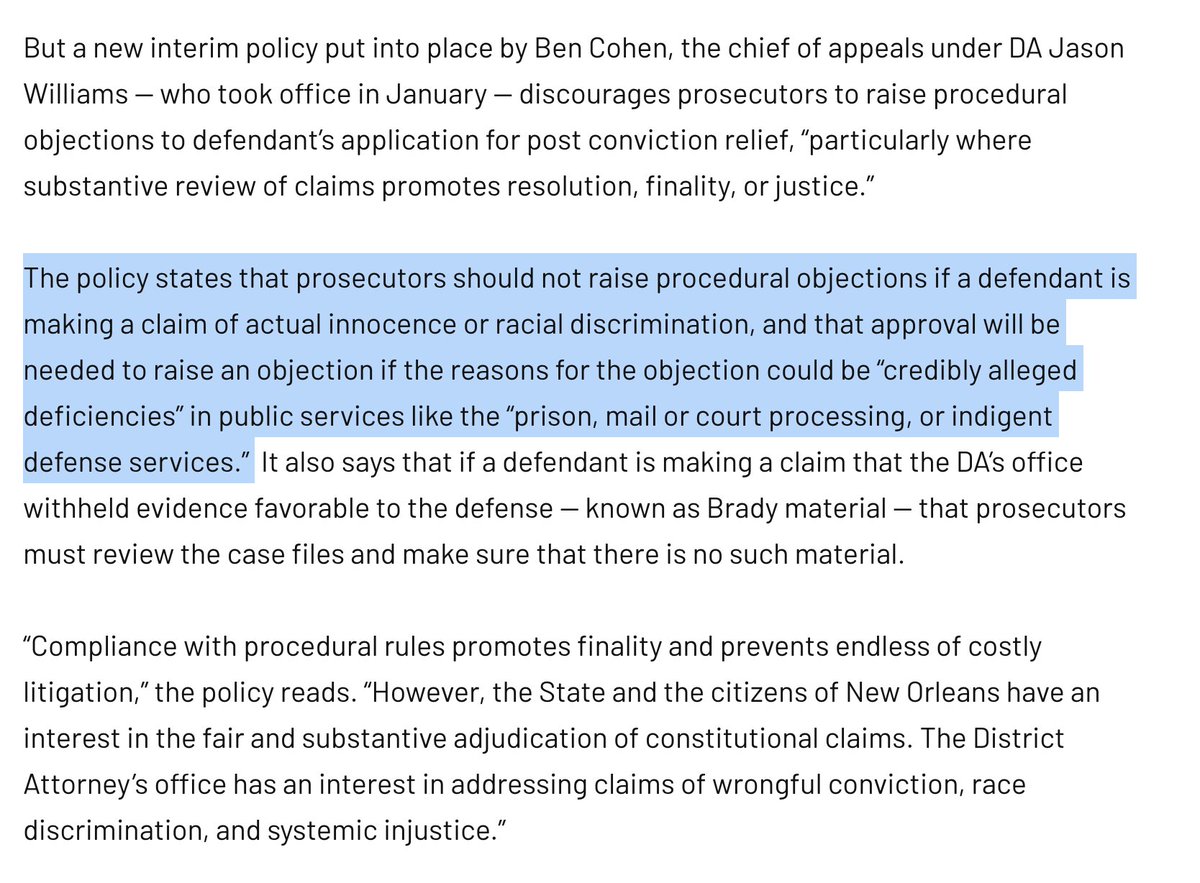1. So much of the focus on progressive prosecutors is about the “front-end” – i.e. new cases. But if you want to see what a progressive prosecutor can do on the “back-end” – i.e. bringing justice to old cases – look to New Orleans DA Jason Williams. https://thelensnola.org/2021/04/08/new-das-office-interim-policy-removes-procedural-barriers-for-people-challenging-convictions/?utm_medium=email">https://thelensnola.org/2021/04/0...
2. Once you’re convicted, the legal system imposes so many barriers to getting your conviction overturned, even when your trial was clearly unjust – time bars, procedural rules, etc. It stacks the deck against you in so many ways.
3. Often innocent people, people convicted via misconduct/ineffective counsel or cases where racism infected trial cannot get relief, not because their substantive claim is insufficient, but because of a procedural bar preventing their substantive claim from being adjudicated.
4. But check out this new policy from New Orleans DA Jason Williams. It takes progressive prosecution to a new level. It essentially says prosecutors will no longer hide behind procedural objections when other important values are at stake – innocence, racism, system failures.
5. One of the truly evil aspects of the criminal system is that it often cheats, violates your rights at trial – and then when you bring these deficiencies to light post-trial, it says: “you’re too too late,” “too bad,” or “meet this impossible burden.” https://thelensnola.org/2021/04/08/new-das-office-interim-policy-removes-procedural-barriers-for-people-challenging-convictions/?utm_medium=email">https://thelensnola.org/2021/04/0...
6. Jason Williams is blazing a trail that says prosecutors should WANT the system to be fair. And that if you claim your trial was deficient, prosecutors should seek to uphold the conviction based on the *substance* of your claim, not some artificial, technical, procedural rule.
7. Being a progressive prosecutor should mean more than doing things better going forward. It should mean taking responsibility for – not trying to sweep under the rug – past failures. It means correcting the system when it gets it wrong, when it fails people.

 Read on Twitter
Read on Twitter


